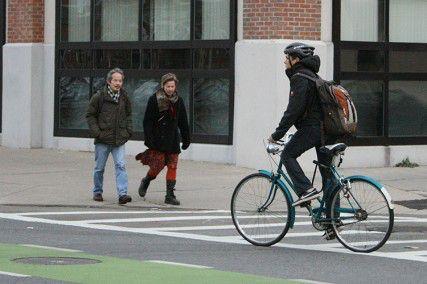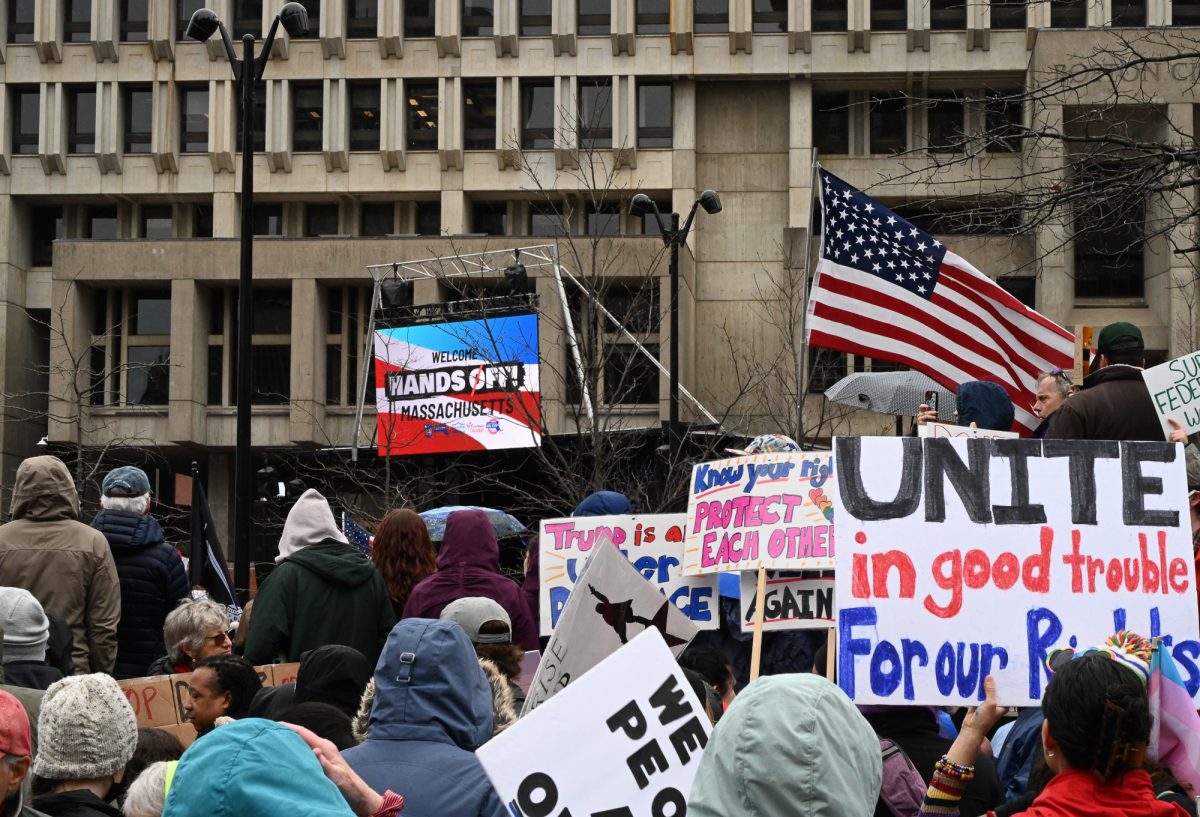
From 2007 to 2011, 99 percent of urbanized areas in the United States, including Boston, showed commuters are transitioning from personal cars to alternative modes of transportation, according to a report released Wednesday by the Massachusetts Public Interest Research Group.
In Boston, there was a 2.7 percent decrease in vehicle miles driven, according to the report, titled Transportation in Transition: A Look at Changing Travel Patterns in America’s Biggest Cities. With the percentage of workers commuting by private vehicle falling three percent from 2000 to the 2007-2011 period, Boston saw the 11th largest reduction out of the 100 largest urbanized areas in the country.
“The younger demographic is expressing a desire to live in either urban areas or areas with a higher concentration of residential units,” said Michael Verseckes, spokesman for the Massachusetts Department of Transportation. “What appears to be happening, is along with that desire to move into an urban area, is also the desire to be without a car.”
The proportion of commuters traveling by bicycle grew in Boston between 2000 and 2010. In Boston, the increase was 0.4 percent, which is one of the ten steepest in the nation, according to the report.
Much of the shift has been caused by increased investments at the city and state levels in public transit, bicycle lanes and walking paths, Verseckes said.
Kirstie Pecci, staff attorney for MASSPIRG, said Boston public transit was not bad, but there is still much room for improvement to be an effective alternative to cars.
“The increased transportation funding passed by the [Massachusetts] Legislature in 2013 is a strong step forward, but it’s still widely viewed as a first step,” she said in a Wednesday release. “Additional investment in, and modernization of, our public transit system is still needed to bring Boston into the 21st century.”
The report comes a month after two similar reports ranked Boston one of the nation’s least drivable cities, while simultaneously being one its most walkable. A report released in September also saw Massachsuetts residents driving less.
Boston showed the 7th largest increase in commuters who bike to work in the nation, according to the MASSPIRG report.
Price Armstrong, program director for the Massachusetts Bicycling Coalition, said Boston Mayor Thomas Menino has been a catalyst for popularizing biking through the creation of Boston Bikes, a city agency that plans and advocates for greater accessibility to bicycles and bike lanes. However, there are still many decisions to be made to keep progress going, he said.
“Mayor Menino has been not only a statewide leader, but indeed a national leader in promoting bicycling,” he said. “[He realizes] our current transportation system is not sustainable. More bicycling is part of the solution to this unsustainability. The city has a vision of being a cycling capital, [and as a consequence] making the tough political choices to realize that vision is going to be an ongoing task.”
While there may be future difficulties, Verseckes said bicycling has effectively been able to become a viable alternative to cars in a short period of time.
“The sheer number of arrows on city streets and the number of bike lanes speaks to leaps and bounds over what it was just a few short years ago,” he said. “It’s a vast improvement over what is was years ago when there was nothing. In fact, cycling was discouraged altogether as a mode of transportation or for any purpose other than recreational use.”
Some residents said they had their issues with city transportation initiatives, but Boston was going in the right direction.
Erin Tucker, 25, a teacher from Brighton, said getting around without cars is easy, but public transportation still has its issues.
“It [the subway] could be a lot more reliable,” she said. “When you have an above ground transit system, delays are expected and it depends what’s going on. I’d be less irritated if I knew why I’d been waiting for half an hour instead of five minutes.”
Scott Jaumot, 31 of the South End, said alternative forms of transportation in Boston have become better in the past few years.
“They’ve added a bunch of bike lanes and now the bike sharing program,” he said. “Boston’s definitely gotten a lot better for cycling. Back in the early 2000s it was ranked as the worst major city in the US for biking, and now it’s one of the best.”





















































































































